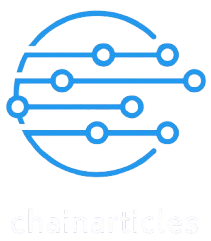Disclaimer: This article is for informational purposes only and does not constitute financial advice. BitPinas has no commercial relationship with any mentioned entity unless otherwise stated.
📬 Get the biggest crypto stories in the Philippines and Southeast Asia every week — subscribe to the BitPinas Newsletter.
Amid ongoing corruption controversies involving alleged ghost flood control projects and several officials from the Department of Public Works and Highways (DPWH), with representatives and senators allegedly involved, President Ferdinand “Bongbong” Marcos Jr. said blockchain technology could serve as a tool to enhance transparency and accountability in government spending.
PBBM: Blockchain Can Enhance Transparency
Speaking in the fifth episode of The BBM Podcast aired on October 6, 2025, Marcos was asked about mechanisms to prevent future irregularities in the national budget following his order to realign ₱255.5 billion from the DPWH flood control projects.

When asked whether technologies like blockchain and artificial intelligence (AI) could be used to prevent budget insertions and ensure transparency in government spending, Marcos said he has yet to see an AI system designed specifically for that purpose. However, he acknowledged that blockchain “could work” as a transparency tool.
Nonetheless, the President emphasized that the core issue remains the persistent neglect of existing regulations.
“Blockchain is something that could work. However, what has happened has been that we have violated the rules. And simply, in the last decade, they stopped following the rules.”
Ferdinand Marcos Jr., President, Republic of the Philippines
Accordingly, he recalled that during his time in local government, national projects had to undergo inspection and approval from local executives before contractors were paid. This process, he noted, had been disregarded in recent years, contributing to lapses in accountability.
Integrity Chain Adoption
Recently, the DPWH officially adopted the Integrity Chain, a blockchain-based transparency platform developed by Integrity Chain and powered by BayaniChain Ventures, to strengthen accountability in public infrastructure projects.
Launched on September 30, 2025, the system will initially track Foreign-Assisted Projects, recording project budgets, milestones, and compliance data on a tamper-evident decentralized ledger verified by validators from NGOs, media, academe, and trade groups.
DPWH Secretary Vince Dizon said the initiative aims to prevent document manipulation and corruption by ensuring project data cannot be altered once recorded. The system will begin with vetted foreign-assisted projects to ensure data accuracy, with plans to expand its use nationwide.
“Walang perfect na sistema, pero it is still much better than what we have now, which is really what caused everything.”
Vince Dizon, Secretary, Department of Public Works and Highways
What is Blockchain?
Blockchain is a secure, decentralized digital ledger that records data across multiple computers, making it nearly impossible to alter or delete entries.
Each transaction is time-stamped and permanently linked to the previous one, creating a transparent and tamper-proof record.
Applying this to government spending would allow every peso in the national budget to be tracked in real time, from allocation to disbursement, enabling citizens to verify where funds go and when they are released. Because blockchain records cannot be modified once published, it ensures full transparency and accountability, significantly reducing opportunities for corruption or fund misuse.
Proposals to Utilize Blockchain on the National Budget
At present, 11 blockchain-related measures have been filed in the 20th Congress, focusing on digital assets, government transparency, and budget accountability. Nine of these bills are lodged in the House of Representatives and two in the Senate, with most proposals seeking to apply blockchain technology to track and manage the national budget.
Bills:
Out of these, the Blockchain the Budget Bill has moved forward as it had its public hearing on October 2, to discuss the proposal. The hearing was led by Senator Paolo Benigno “Bam” Aquino IV, chairperson of the Senate Committee on Science and Technology and the principal author of the bill.
At the hearing, DICT Secretary Henry Aguda expressed enthusiasm to endorse the bill for urgent certification.
The Problem Starts Before Data Reach the Blockchain
In an opinion piece published on September 30, tech writer John Clark Naldoza cautioned that using blockchain for government transparency may “miss the mark” in addressing accountability issues.
- Naldoza argued that while blockchain prevents data from being altered once recorded, it cannot ensure the accuracy of information entered into the system. He warned that “garbage data” can still become a permanent, immutable record.
- He cited the “oracle problem,” where unreliable external data entered by individuals undermines blockchain’s integrity.
- According to Naldoza, true transparency depends on improving data verification, auditing, and oversight at the source rather than relying on blockchain as a technological quick fix.
Conversely, Silliman University College of Law Dean and former Solicitor General Florin Hilbay also questioned the proposals to place the national budget on a blockchain, arguing that it adds cost and complexity without guaranteeing transparency.
- In a post on October 3, Hilbay described blockchain as a “marketing term” rather than a true technological solution and warned that centralized government blockchains could create new vulnerabilities.
This article is published on BitPinas: PBBM Open to Using Blockchain to Curb Budget Anomalies
What else is happening in Crypto Philippines and beyond?





